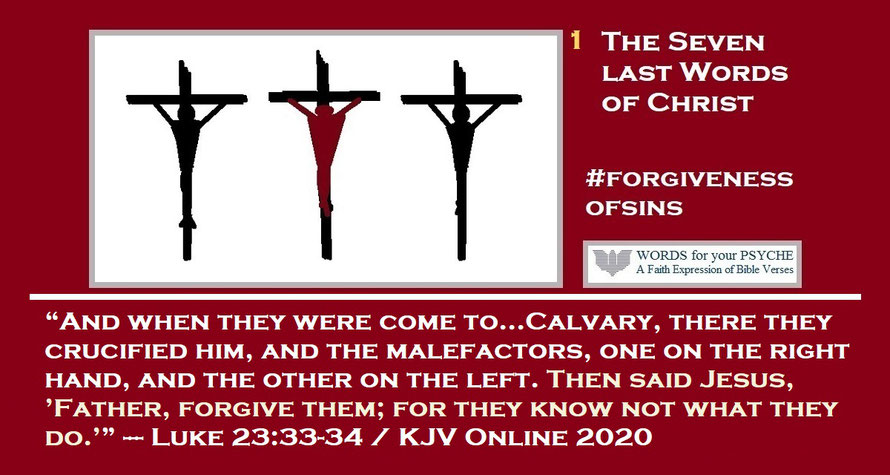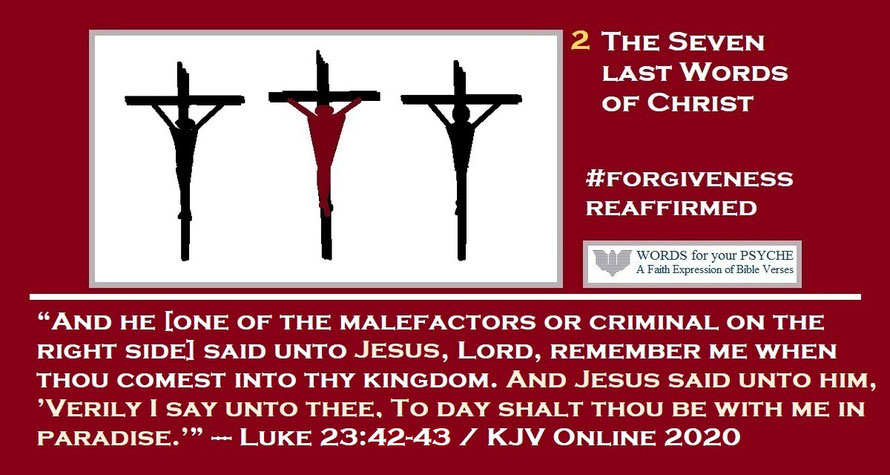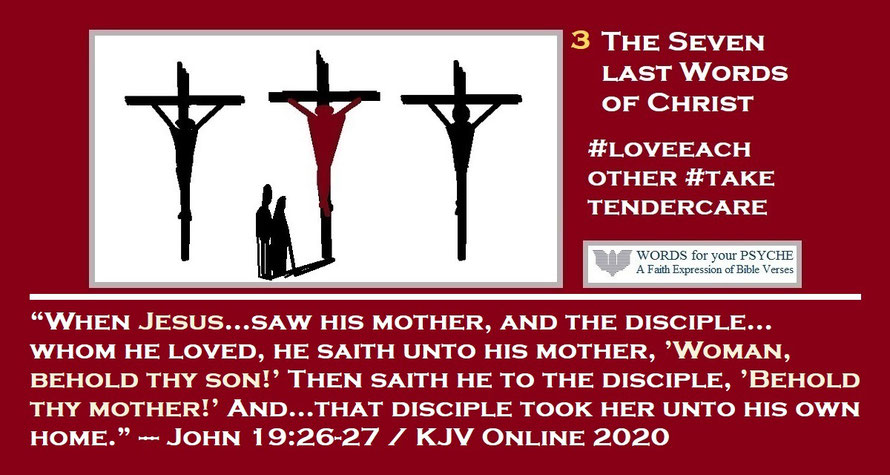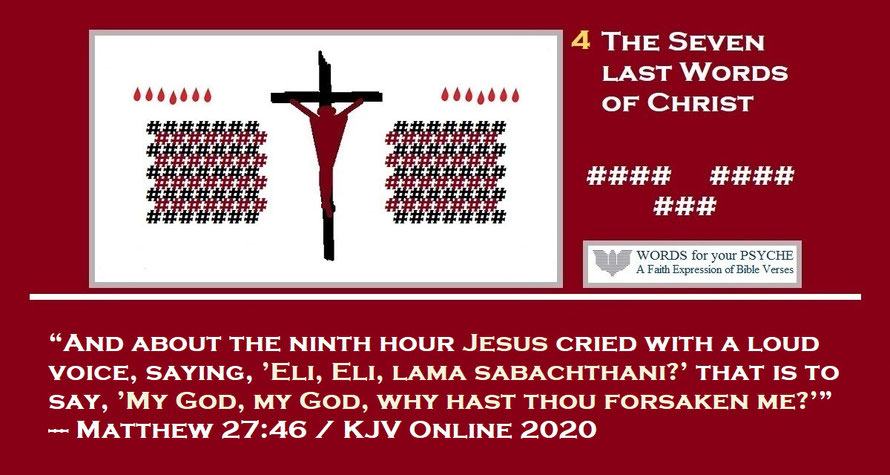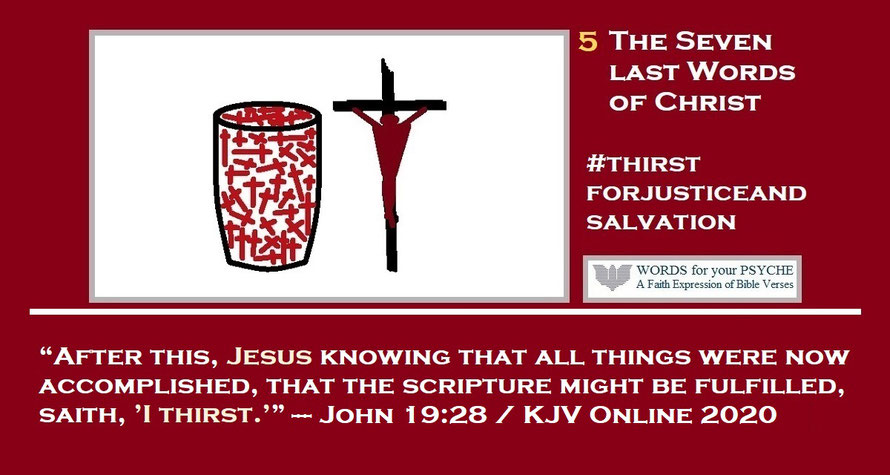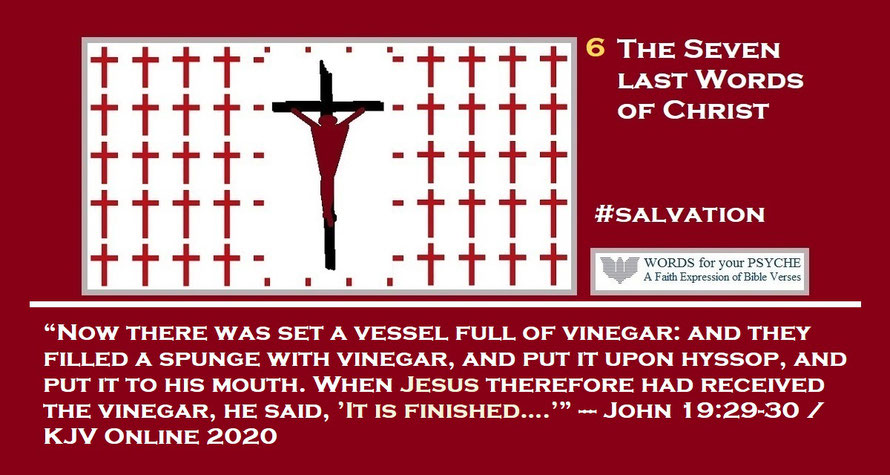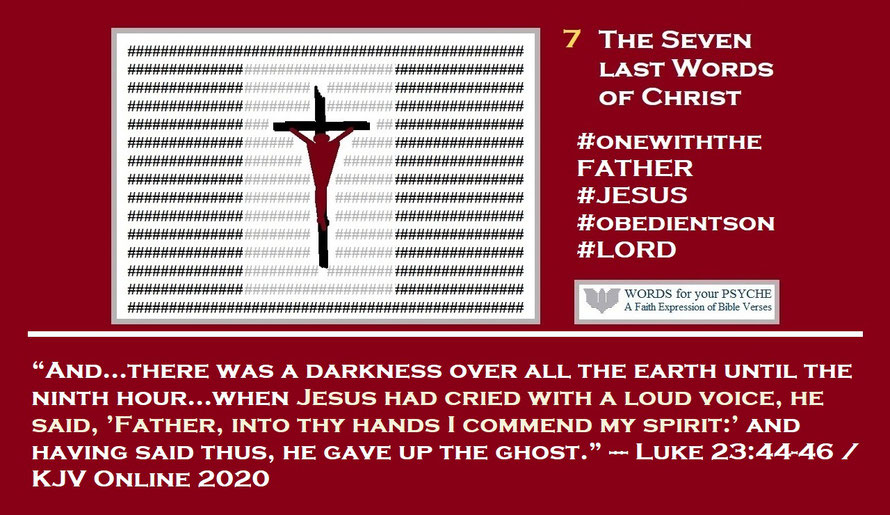
The seven last words were statements or utterances made by Jesus Christ during his crucifixion. The statements had important meanings for his ministry and purpose in life, which was to save mankind. The first statement dealt with the forgiveness of sin and it was a main objective of the ministry of Jesus. And I quote the King James Version for the verses, “And when they were come to the place, which is called Calvary, there they crucified him, and the malefactors, one on the right hand, and the other on the left. Then said Jesus, ’Father, forgive them; for they know not what they do.’ And they parted his raiment, and cast lots.” (Luke 23:33-34 / KJV Online 2020 - Underscoring Supplied) The second statement, also, had to do with the forgiveness of sin. It was a reaffirmation of God’s love and mercy for us while it revealed that God gave us the ability to expedite his reaffirmation by believing in Jesus. One of the two criminals who were crucified with Jesus – the one on his right side – begged Jesus to remember him when Jesus goes to paradise. Jesus answered him in no uncertain terms that he will be with him in paradise on that day they will both expire on the cross. And I quote, “And he said unto Jesus, Lord, remember me when thou comest into thy kingdom. And Jesus said unto him, ’Verily I say unto thee, To day shalt thou be with me in paradise.’” (Luke 23:42-43 / KJV Online 2020 - Underscoring Supplied)
The third statement concerned Mary, the mother of Jesus, and John, the beloved disciple. Jesus instructed Mary to take John as a son and John to consider Mary as her mother, and I quote, “When Jesus therefore saw his mother, and the disciple standing by, whom he loved, he saith unto his mother, ’Woman, behold thy son!’ Then saith he to the disciple, ’Behold thy mother!’ And from that hour that disciple took her unto his own home.” (John 19:26-27 / KJV Online 2020 - Underscoring Supplied) That mother-son relationship blossomed to become what is, probably, Christianity today.
The fourth statement was a verse in Psalm 22. Jesus used the words of the verse and it showed a man expressing his feeling of being utterly alone while suffering from extreme physical and psychological abuse from people who wanted him dead. Said Jesus and I quote, “My God, my God, why hast thou forsaken me?” (Matthew 27:46 / KJV Online 2020 - Underscoring Supplied) This pain-filled utterance seemed to be a verbal representation of the drops of blood-like sweat Jesus experienced in the garden of Gethsemane on the night before he was betrayed. During that time, he prayed and asked God the Father to take away the cup of suffering he will have to endure, if it was possible. The fifth statement had to do with thirst. He was hanging on the cross under the scorching heat of the midday sun and said, “I thirst.” (John 19:28 / KJV - Underscoring Supplied) Jesus was in the process of fulfilling the Father’s will to save mankind. He was thirsting for justice and salvation for humankind. He was the savior of the world. The sixth statement was the consequence of Jesus thirst for justice and salvation – and I quote this passage from the Bible: “Now there was set a vessel full of vinegar: and they filled a spunge with vinegar, and put it upon hyssop, and put it to his mouth. When Jesus therefore had received the vinegar, he said, ’It is finished….’” (John 19:29-30 / KJV Online 2020 - Underscoring Supplied) Humankind had been saved from sin and destruction.
The seventh and last statement made by Christ while hanging on the cross was a statement of complete trust in God in the face of death. It, also, was a reaffirmation of the divinity of Christ. He was God’s Son who was obedient until death in order to do His Father’s will, and I quote, “’Father, into thy hands I commend my spirit:’ and having said thus, he gave up the ghost.” (Luke 23:46 / KJV Online 2020 - Underscoring Supplied)
A Final Word: As Jesus had said, he rose from the dead three days after his crucifixion and burial. Like God the Father, he, too, was (and is) the resurrection and the life.
ARTWORKS: THE SEVEN LAST WORDS OF CHRIST

